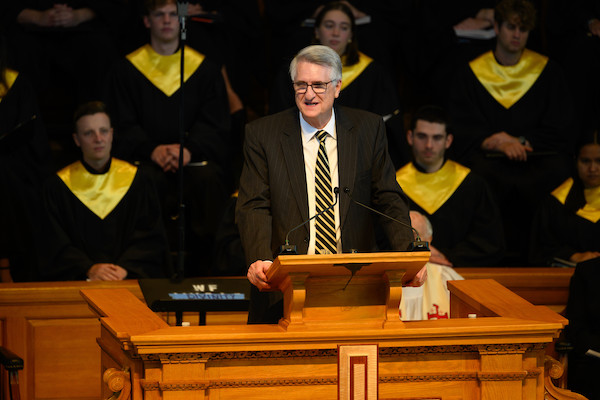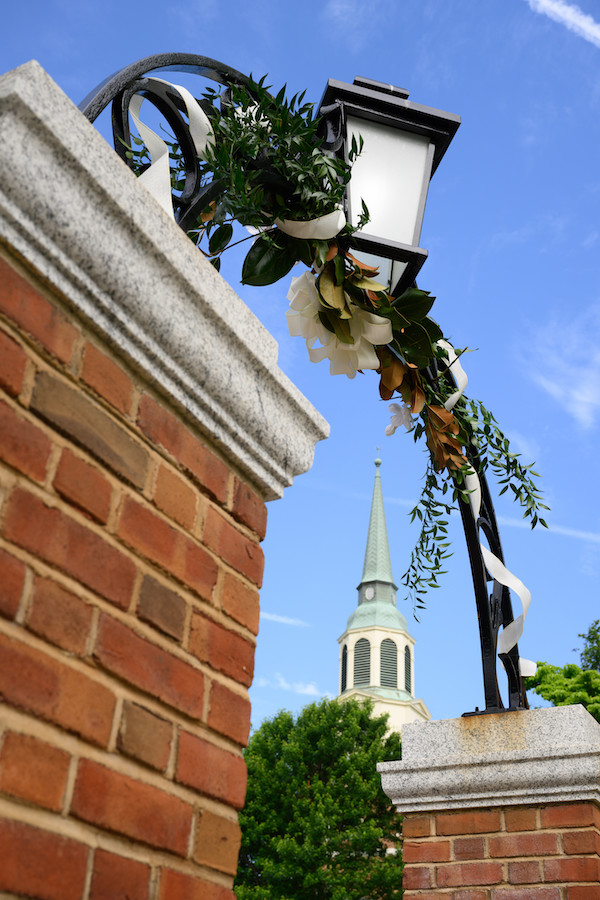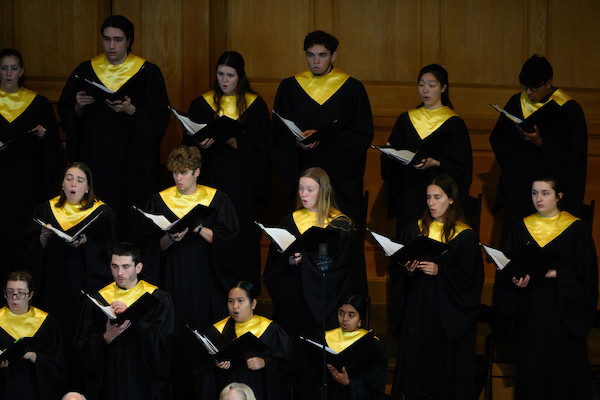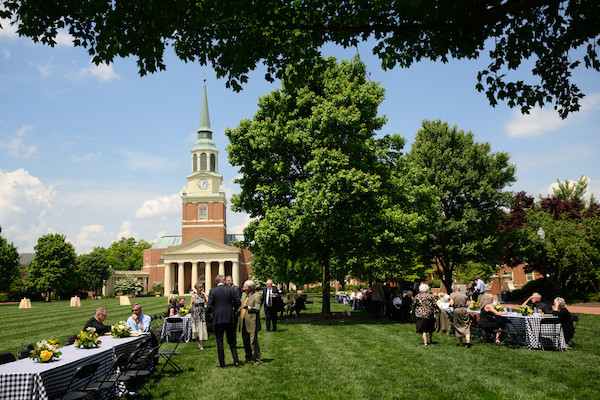Edwin Graves Wilson – We could not be who we are without his being who he was.
Lover of family, beauty, language, literature (especially poetry), art, movies, music, history, sports; lover of Wake Forest, of people and of life. How do we express our gratitude for this man who became the central figure in establishing and nurturing the spirit and personality of his beloved college in its new home in Winston-Salem in 1956, a man whose legacy and words inform the highest ideals that Wake Forest proclaims today? How do we honor this professor who inspired us to be our better selves and to understand what is worth living for? How do we remember this leader whose joyful life gave us the confidence to believe that the price we might have to pay for our principles would be worth it? How can we firmly settle in our minds, now that he is physically gone, the lessons that he taught so well, and go on, ever aspiring to be his worthy students?
Certainly, his own words can help.

Reid Morgan
My mind goes back to a trip he and I made to a football game at Duke in the ’80s. He drove, and we talked about everything going to and from, including his job as provost, which was not a usual topic. I knew that, as dean of the college beginning in 1960 and provost since 1967, he had interviewed almost every current faculty member before they were appointed. And so I asked him a question, trying to understand how he had translated his ideals into the selection of faculty: “Dr. Wilson, what is the most important single quality in a faculty member?” He answered quickly: “To serve others above themselves.” I needed no follow-up.
On another occasion, at the Homecoming banquet in 1978, Dr. Wilson made a speech that must rank among the greatest ever given at Wake Forest. Some of you will remember the controversy with the Baptist State Convention of North Carolina that arose in the ’70s and culminated in Wake Forest’s separation from the convention in 1986. In 1978, a key question was what would Wake Forest be without the founding convention – what was our institution’s independent identity?

Dr. Wilson answered the question in a way that not only provided answers for that moment, but also became a ringing, timeless statement of the essence of our motto. The ideal of Wake Forest, he said, was “to stand up ‘for humanity’ in all its diversity and richness, to be a place of learning which men and women of good will everywhere might, if they knew it, be happy to call home.”
A place where men and women of good will, everywhere, might, if they knew it, be happy to call home.
He thus described a community – a community which universally honors and values others. And he described a conscience – a conscience that continually seeks to understand more fully the meaning of good will toward others. At every opportunity under Dr. Wilson’s leadership, the University became more inclusive, welcoming and affirming to all.

He went on to share that Homecoming evening his strong hope “that Wake Forest will continue forever to be what it was when I first saw it almost forty years ago and what it is today: a place where reason, imagination and faith flourish, a place eternally and fearlessly in pursuit of the truth, a place which is open, hospitable, generous, loving and free.”
The first time I read these words, I knew he had captured, in simple language, in a few phrases, the nature of our bond as an academic community. Years later, I had the opportunity to thank him for his wisdom at that critical moment and to invite him to elaborate on what he had said. In a typical fashion for him whenever he was praised for something, he heard me, and his eyes acknowledged my comment – and then he quickly changed the subject.
On occasion, Dr. Wilson could also challenge Wake Forest to live up to its ideals. He entitled a speech, made on Founder’s Day in 1992, “To Honor the Legacy.” It was a kind of valedictory address, made to a packed chapel, upon his retirement as provost after 23 years. The new wing of the Reynolds Library was being named for him. It was a time, nine years into the Hearn administration, when Wake Forest was prospering in the midst of what was called a “rebuilding” of the campus. But Dr. Wilson’s words, harkening to Scripture, were meant for all times when he urged the University to maintain due perspective on its growth and be “certain that, as Wake Forest grows in wealth, prestige, and success, as Wake Forest so to speak gains the whole world, it will not lose its own soul.” I can remember where I was sitting in this chapel when I heard those words.

I have often thought about the power of his words. But especially in recent weeks my mind has turned also to the abundant joy at the center of his life. Whether it was in class, where three days a week time stood still as he exhibited the jewels of literature to an overflowing class – or at a university event, where every person with whom he spoke felt his keen interest in their lives – or with Emily and the family, where he could relax into his most cherished role as husband, father and grandfather – it was his joy that illuminated his face and enlivened his sonorous voice. His joy captured our hearts.
Through his words and example, we learned great truths. Through his joy, we made them our own.


